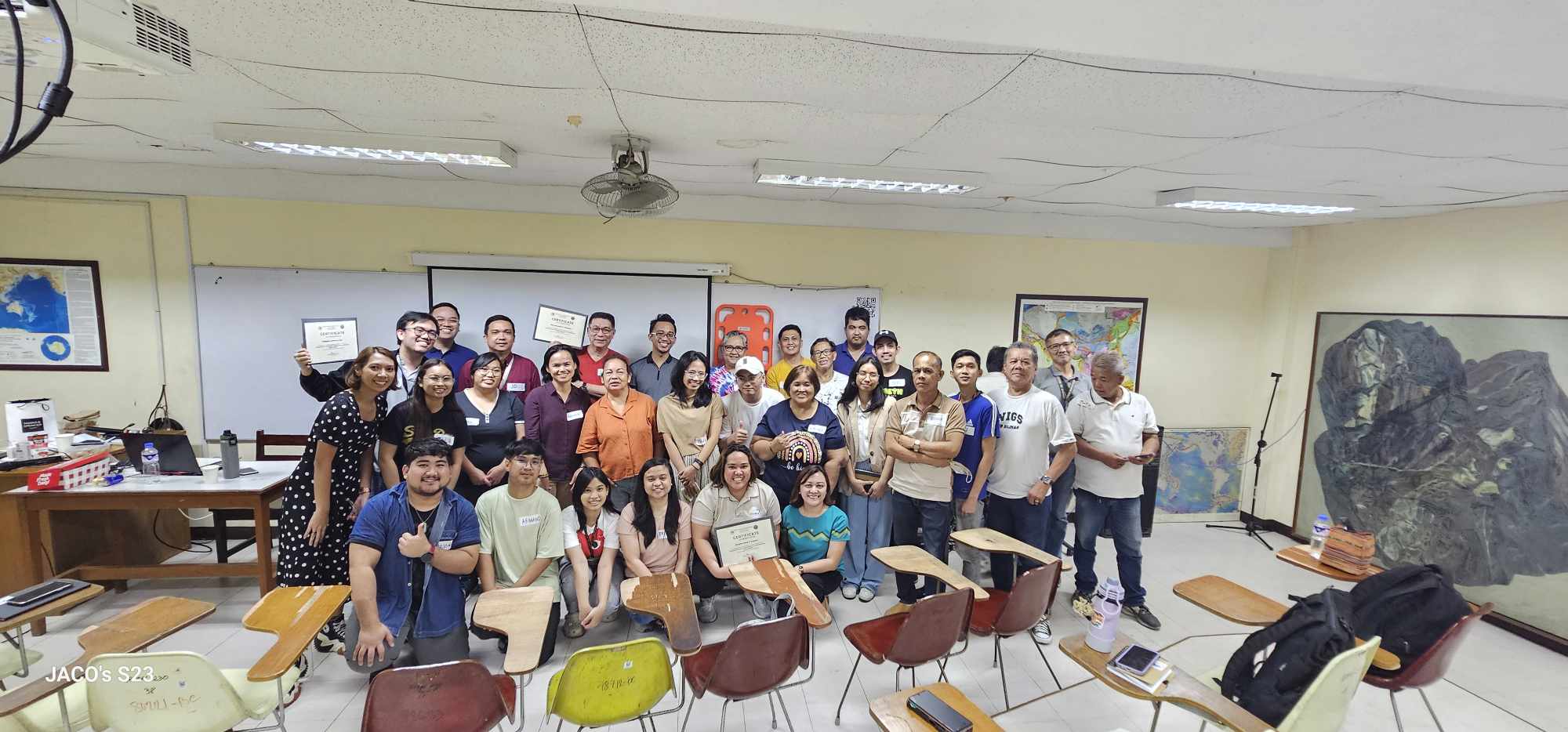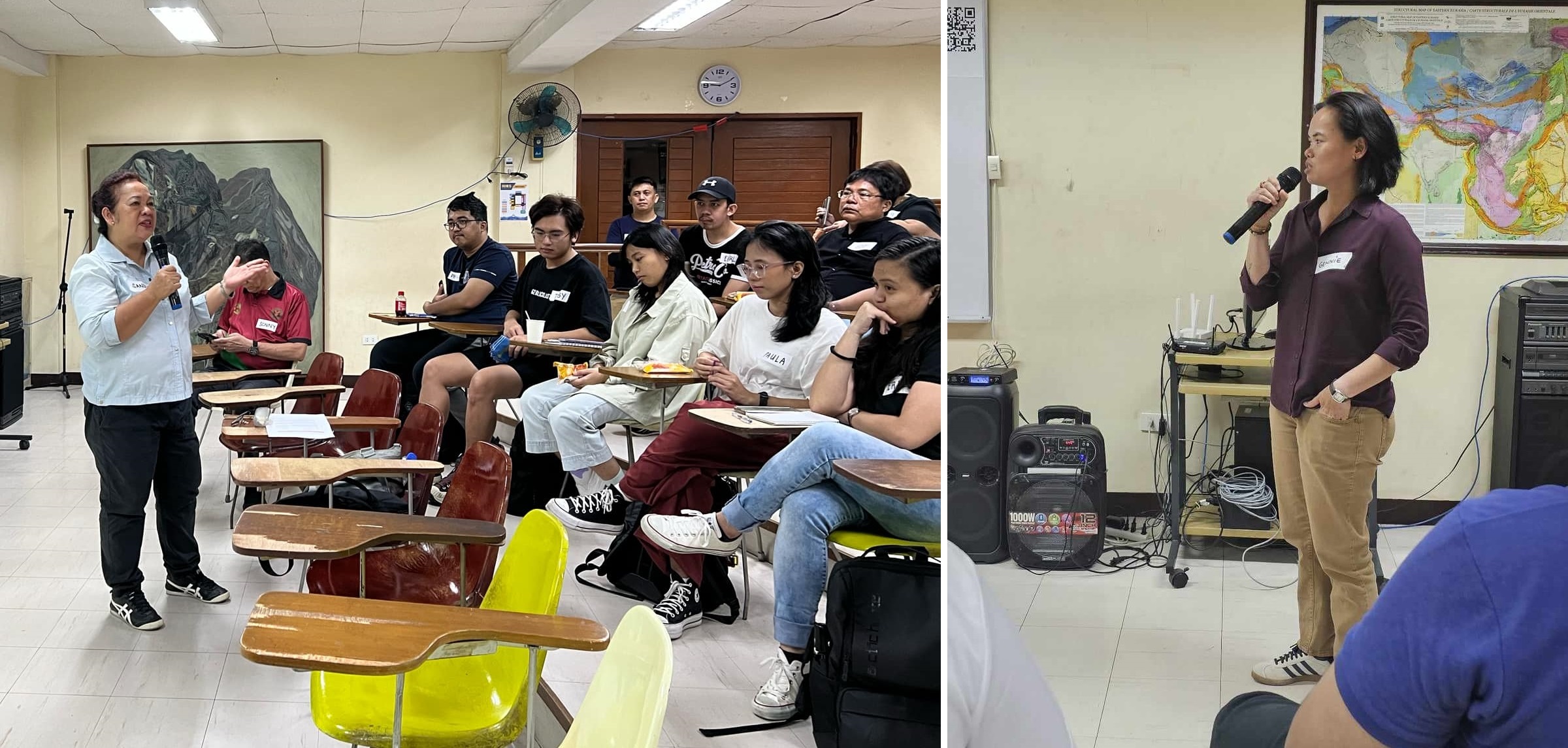
On August 15-16, 2024, the UP Resilience Institute (UPRI) conducted a comprehensive Emergency Preparedness Plan (EPP) training workshop, titled Sanay Agap Iglap Pagsasanay (SAGIP) – Para sa Kolehiyo, at the UP National Institute of Geological Sciences (UP NIGS). The event, led by the Institution Building Division of UPRI, saw active participation from 37 individuals across various departments within UP NIGS, including the Office of the Director, Resources and Facilities, Laboratory, IT support, and building and security & maintenance personnel. Key officials in attendance included Director Noelynna T. Ramos, Prof. Sandra G. Catane, and Prof. John Dale B. Dianala.
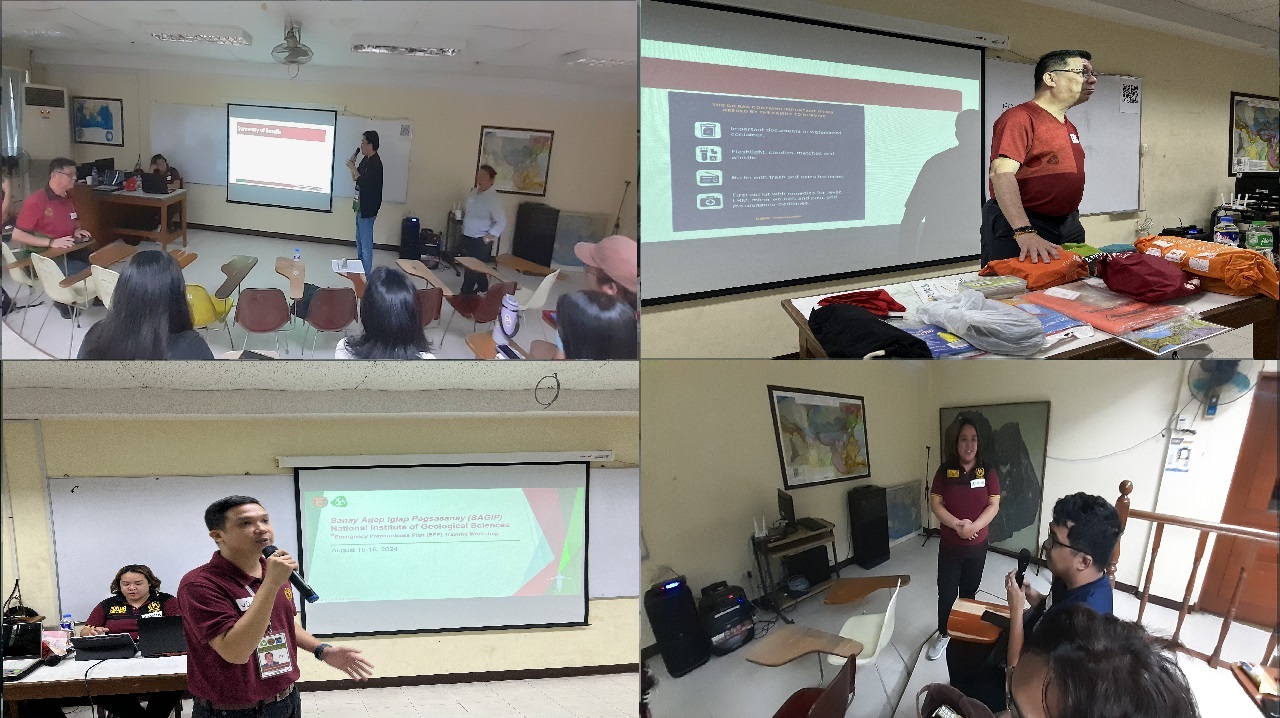
The training was spearheaded by Jose Abraham Ongkiko, Chief Science Research Specialist of the Institution Building division, with the support of Junior Project Assistants Jerzyne Anne A. Corpuz, Franklin Joshua G. Gali, and Jonathan David M. Maligalig, all of whom delivered essential lectures.The workshop kicked off with welcome remarks from Prof. Sandra G. Catane, Deputy Director for the Resources and Facilities Division of UP NIGS, who provided an overview of the college, which included its Vision, Mission and Goals and demographic data of faculty, REPS, staff and students. The first day covered a range of critical topics, including an overview of Emergency Preparedness Planning by Jose Abraham Ongkiko, where he emphasized the importance of having a robust emergency plan. Franklin Joshua G. Gali discussed the purpose, objectives, and scope of an EPP, as well as the results of the Rapid Inspection & Assessment, which highlighted the strengths and areas for improvement within UP NIGS.
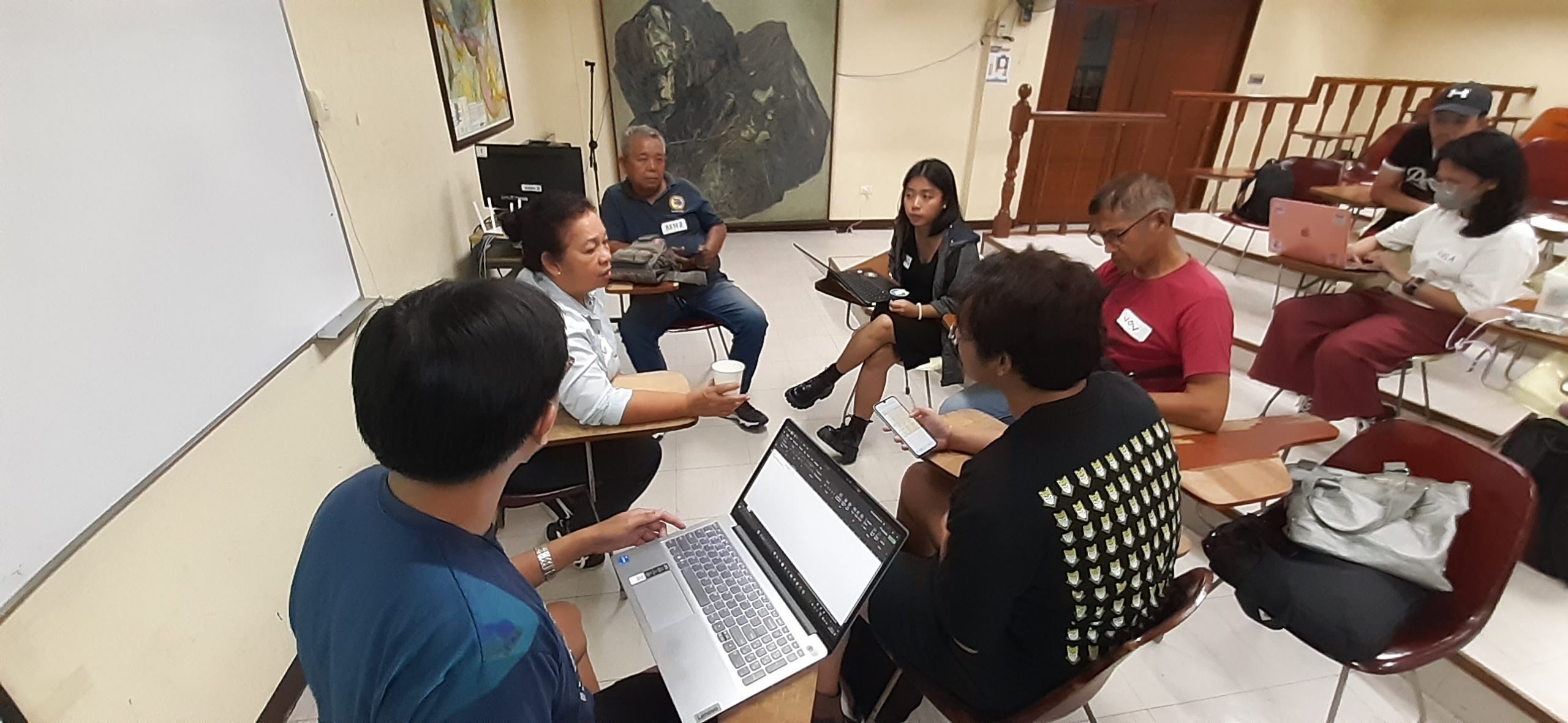 Image 3: UP NIGS participants engaging in a collaborative discussion to identify their Mission Essential Functions (MEFs) as part of the Emergency Preparedness Planning workshop.
Image 3: UP NIGS participants engaging in a collaborative discussion to identify their Mission Essential Functions (MEFs) as part of the Emergency Preparedness Planning workshop.
Jerzyne Anne A. Corpuz led the discussion on Hazard Identification, where participants engaged in a lively discussion to identify the top three hazards for their EPP—Earthquake, Fire, and Chemical Hazards. The day concluded with a session on the Continuity of Operations and Mission Essential Functions (MEF), led by Franklin Joshua G. Gali, where strategies for maintaining essential functions during emergencies were discussed.
Day two continued with a recap of the previous day’s sessions and introduced new topics, including the Communication Plan, presented by Jonathan David M. Maligalig. He discussed the vital role of communication during emergencies and how to tailor the communication plan to fit the unique structure and needs of UP NIGS.
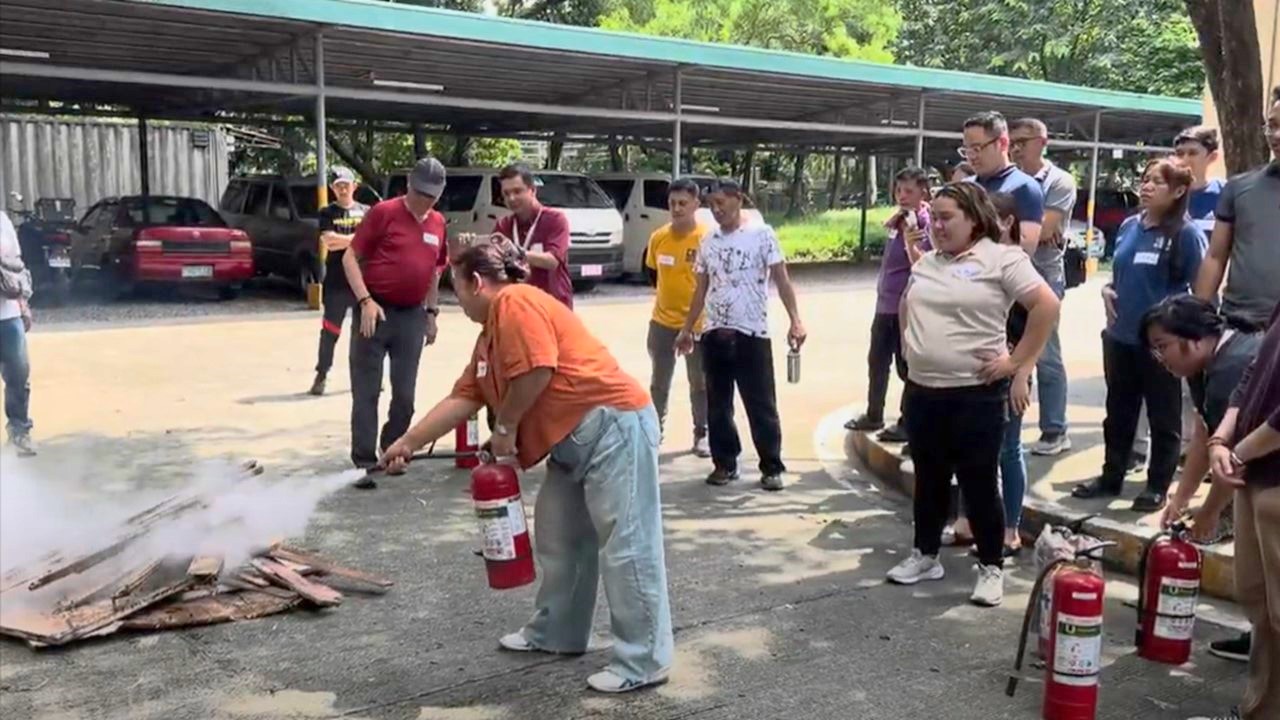
Jose Abraham Ongkiko returned to cover Basic Disaster Preparedness, where he detailed evacuation plans and demonstrated essential survival skills such as basic hand signals, whistle signals, flashlight signals, and the must-have items for a Go Survival Bag and Everyday Carry (EDC). Jerzyne Anne A. Corpuz discussed the protocols for Activation, Non-activation, and Deactivation of the EPP, after which participants engaged in an open forum to draft their own EPP, identifying critical Mission Essential Functions, Recovery Time Objectives, and Recovery Point Objectives.
.
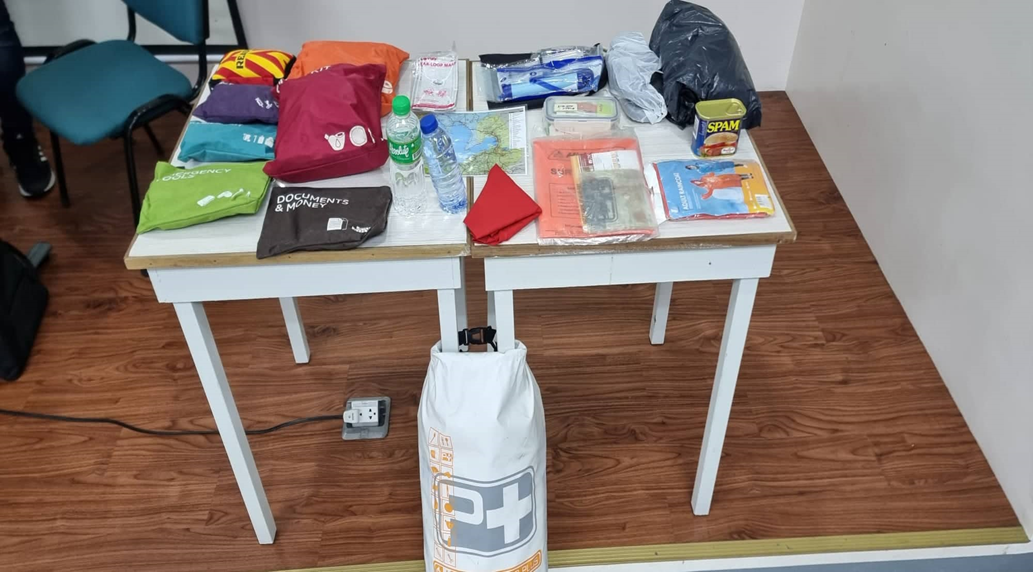
To ensure the training was not just theoretical, the UP Resilience Institute team conducted two surprise emergency drills—one for an earthquake and another for a fire. These drills aimed to test the readiness and response of the UP NIGS participants under simulated emergency conditions. During the fire drill, participants were given a hands-on demonstration of how to use fire extinguishers. They practiced operating the extinguishers themselves, gaining crucial familiarity with this life-saving equipment. The drills, which also incorporated the use of hand signals, whistles, and flashlight signals, provided valuable insights into the strengths and areas for improvement in the College’s emergency response plan.

The training was a crucial step for UP NIGS in enhancing its readiness for any potential emergencies, with UPRI and its Institution Building division at the forefront, ensuring that the college is equipped with the knowledge and tools to safeguard its community.
